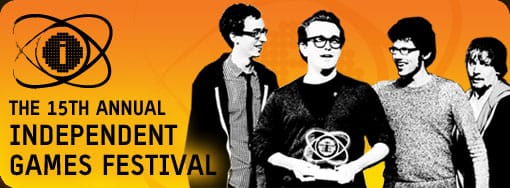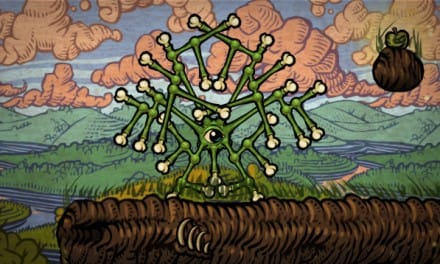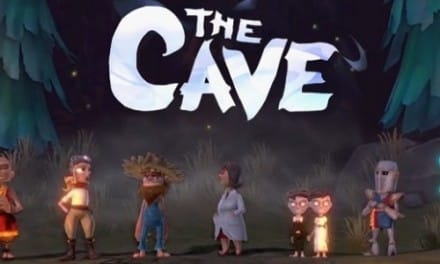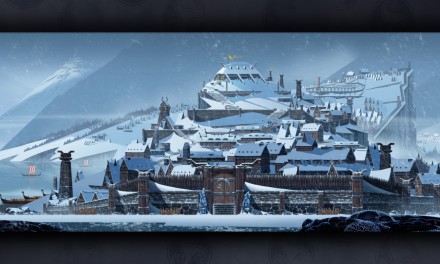Back in 1998 UBM TechWeb established the Independent Games Festival in order to encourage innovation in game development and to recognize the best independent game developers.
Since the IGF launch there have been many major IGF prize winners that have gone on to much larger exposure, garnering increased distribution, a bigger profile, and getting lots more gamers playing their art. We are sure you’ve heard of Minecraft, World Of Goo, Limbo, and Braid.
This year’s IGF finalists faced more competition than ever before, as the festival attracted nearly 600 entrants a pleasnat headache for IGF organizers who have now expanded each of its Main Competition award categories to six finalists (except Nuovo, which has 8 finalists). All IGF 2013 Main Competition finalists are not only eligible for Microsoft Studios’ second annual sponsored prize — a guaranteed first-party publishing deal (including funding if desired) to release the selected title on LIVE-enabled platforms, including the Xbox LIVE Arcade service, Windows Phone, and Windows, and will also receive a distribution deal offer from Steam to have their game made available on multiple non-console platforms.
A couple of weeks ago this year’s list of finalists were revealed and, will be competing for recognition in seven jury-voted categories: the Seumas McNally Grand Prize, Excellence In Design, Excellence In Art, Excellence In Narrative, Technical Excellence, Excellence in Audio, and the Nuovo Award.
We dug through these categories, and we are here to present you 7 of the games we thing everyone will be talking about after March 27, when all the winners will be revealed.
Kentucky Route Zero, Cardboard Computers’ adventure game that leads 2013 IGF awards with four nominations, including nods for Excellence in Visual Art, Excellence in Narrative , Excellence in Audio, and the Seumas McNally grand prize.
This game was created by two people: Jake Elliott (design, programming & writing) and Tamas Kemenczy (design & art). We are long-time collaborators who have developed many projects together over the past several years. Jake has developed several games including “A House in California” which is a finalist for the Nuovo Award in the 2011 Independent Games Festival.
http://www.youtube.com/watch?feature=player_embedded&v=gGQOaz1xFOo&rel=0&w=580&h=361
Kentucky Route Zero is a five-act game about a secret highway in the caves beneath Kentucky, and the mysterious folks who travel it. According to Cardboard Computers gameplay is inspired by point-and-click adventure games (like the classic Monkey Island or King’s Quest series, or more recently Telltale’s Walking Dead series), but focuses more on characterization, atmosphere and storytelling rather than clever puzzles or challenges of skill. Unlike mainstream games, Kentucky Route Zero doesn’t force you to speed-run the game.
The first act Kentucky Route Zero will set you back $7 for Windows and Mac. You can also pre-purchase the five-act bundle pre-purchase for $25 (Linux coming soon).
FTL: Faster Than Light is a spaceship simulation roguelike-like. Faster Than Light was one of the most successful Kickstarter funded projects back in February. The development duo wanted to receive at least $10 000 in order to have FTL going, however due to overwhelming public demand they managed to raise 2000% more, reaching a funding amount of $200,542. The game is nominated for Excellence In Design, and the Seumas McNally Grand Prize.
In terms of gameplay Subset Games describes FT is split into two major parts: exploration and combat. You explore by travelling instantly with your FTL drive between discrete “Jump Beacons;” every location contains a text-based event that has a variety of choices and outcomes. Your ship can be upgraded with advanced weaponry and equipment purchased with collected scrap metal, while your crew will improve with experience. Fighting enemy ships involves real-time management of crew, power distribution and weapons.
http://www.youtube.com/watch?feature=player_embedded&v=Vk_2s55KTrE&rel=0&w=580&h=361
“There is enough content, enough races and ships and weapons and tricks and tactics in Faster Than Light to outweigh pretty much every commercial ship simulator ever released, and that’s just under 10USD. It’s tremendous value for money, and we’ve had many unforgettable moments with the game, chuckling at the silly enemies who couldn’t see our attack coming, or helplessly watching our crew mauled to pieces in a last desperate Medbay stand against swarming Mantis, a manly lump in our throats as they play their pixelated deaths.
As it stands, FTL is a masterful reconstruction of that captain-defining moment, and while it has plenty of room to grow, it’s spectacular at what it does. The game’s diamond-edged difficulty will punish every oversight, and make each mistake a grave one. However, you’ll go back to it over and over again, if nothing else to see if you can do that flame laser trick on other enemies, and watch them choke in cold, hard vacuum for a change,” we wrote upon reviewing the game.
Incredipede, the latest from globe-trotting developer Colin Northway is an imaginative puzzle game with unique mechanics about creating life and exploring how creatures move nominated for the Excellence in Visual Art award.
Colin had found somewhat overnight success with his very first Flash game, Fantastic Contraption, now a multi-platform powerhouse in its own right, and the truth is that Incredipede doesn’t fall too far from the Contraption tree-of-knowledge, as it were, still apparently being primarily concerned with creating ambulatory creatures that traverse from one side of a level to another.
In this game you must help Quozzle, a spider-like creature, find her sisters by solving a succession of puzzles. There will be obstacles on your way, but Quozzle has the amazing ability to grow arms and legs wherever she wants. Add an extra limb to climb higher or an extra muscle to get over a hole and much more.
There are has 60 levels set in three different worlds but players can also create their own levels and share them online.





